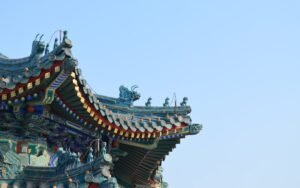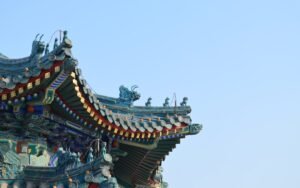Chengyu, or Chinese idioms, are an integral part of the Chinese language and culture, encapsulating profound meanings and historical narratives within just a few characters. Typically composed of four characters, these idiomatic expressions convey wisdom, moral lessons, and cultural values that have been passed down through generations. The beauty of chengyu lies not only in their brevity but also in their ability to evoke vivid imagery and provoke thought, making them a cherished aspect of both spoken and written Chinese.
The origins of many chengyu can be traced back to ancient literature, folklore, and historical events, often reflecting the philosophical underpinnings of Confucianism, Daoism, and Buddhism. As such, they serve as a linguistic bridge connecting modern speakers with the rich tapestry of Chinese history. Understanding chengyu is essential for anyone wishing to delve deeper into the nuances of the Chinese language, as they often appear in everyday conversation, literature, and even business contexts.
This article will explore several notable chengyu, each with its own unique story and significance. Start learning Chinese today at the LC Chinese School in Oslo.
Table of Contents
ToggleSummary
- Chengyu are traditional Chinese idiomatic expressions, usually consisting of four characters, that are widely used in Chinese language and culture.
- The story behind “鸡毛蒜皮” (jīmáosuànpí) involves a man who was so annoyed by trifling matters that he collected chicken feathers and garlic peels to illustrate his point.
- “画蛇添足” (huàshétiānzú) originates from a tale of a man who painted a snake but then added legs to it, ruining the effect.
- “井底之蛙” (jǐngdǐzhīwā) refers to a frog in a well who thinks the sky is as big as the mouth of the well, representing narrow-mindedness.
- “狗急跳墙” (gǒujítiàoqiáng) comes from the idea that a cornered dog will jump over a wall, reflecting desperation in difficult situations.
The story behind “鸡毛蒜皮” (jīmáosuànpí) – “trifles”
The chengyu “鸡毛蒜皮” (jīmáosuànpí), which translates to “chicken feathers and garlic skins,” is used to describe trivial matters or insignificant details that should not be given undue attention. The phrase evokes the image of mundane items that are often discarded without a second thought, highlighting the futility of worrying about such minor issues. The origins of this idiom can be traced back to the everyday life of common people in ancient China, where chicken feathers and garlic skins were seen as waste products with no real value.
In a broader context, “鸡毛蒜皮” serves as a reminder to focus on what truly matters in life rather than getting bogged down by inconsequential concerns. It encourages individuals to adopt a pragmatic approach when faced with challenges, urging them to prioritise significant issues over trivial ones. This idiom is particularly relevant in today’s fast-paced world, where distractions abound and it is easy to lose sight of what is genuinely important.
The story behind “画蛇添足” (huàshétiānzú) – “to ruin the effect by adding something superfluous”
“画蛇添足” (huàshétiānzú), which translates to “to draw a snake and add feet,” conveys the idea of ruining something by adding unnecessary elements. This chengyu originates from a fable about a group of people who were tasked with drawing a snake. One individual completed the task quickly, while another, feeling envious of his speed, decided to embellish the drawing by adding feet.
In doing so, he not only failed to improve the original work but also rendered it absurd. This idiom serves as a cautionary tale about the dangers of overcomplicating matters or trying to enhance something that is already complete. It highlights the importance of recognising when enough is enough and understanding that sometimes simplicity is key.
In various aspects of life—be it art, communication, or problem-solving—”画蛇添足” reminds us that less can often be more.
The story behind “井底之蛙” (jǐngdǐzhīwā) – “a frog in the well”
The chengyu “井底之蛙” (jǐngdǐzhīwā), meaning “a frog in the well,” illustrates the concept of limited perspective or narrow-mindedness. The story behind this idiom revolves around a frog that lives at the bottom of a well and believes that its small world is all there is to existence. When it encounters a turtle from the sea, it learns about the vastness of the ocean but struggles to comprehend such an expansive reality.
This idiom serves as a metaphor for individuals who are confined by their own experiences and fail to see beyond their immediate surroundings. It encourages open-mindedness and exploration, urging people to broaden their horizons and embrace new ideas. In an increasingly interconnected world, “井底之蛙” serves as a poignant reminder that there is always more to learn and discover beyond our familiar confines.
The story behind “狗急跳墙” (gǒujítiàoqiáng) – “a cornered dog will jump over a wall”
“狗急跳墙” (gǒujítiàoqiáng), which translates to “a cornered dog will jump over a wall,” conveys the idea that desperate situations can lead individuals to take drastic actions. The origin of this idiom lies in the behaviour of dogs when they feel threatened or trapped; they may resort to extreme measures in order to escape their predicament. This chengyu serves as a reminder that when people are pushed into a corner or face insurmountable challenges, they may act unpredictably or irrationally.
It highlights the importance of understanding human behaviour in times of crisis and recognising that desperation can lead to unexpected outcomes. In both personal and professional contexts, “狗急跳墙” encourages individuals to approach difficult situations with empathy and awareness, acknowledging that everyone has their breaking point.
The story behind “杞人忧天” (qǐrényōutiān) – “to worry about something that will never happen”
The idiom “杞人忧天” (qǐrényōutiān), meaning “the man from Qi worries about the sky falling,” originates from an ancient tale about a man who was so consumed by fear that the sky might collapse that he became paralysed by anxiety. His constant worrying prevented him from enjoying life or taking action, illustrating how unfounded fears can hinder personal growth and happiness. This chengyu serves as a cautionary reminder about the futility of worrying excessively about hypothetical scenarios that are unlikely to occur.
It encourages individuals to focus on the present moment and take proactive steps towards their goals rather than being immobilised by fear. In today’s fast-paced world filled with uncertainties, “杞人忧天” resonates deeply as it urges people to cultivate resilience and maintain perspective amidst life’s challenges.
The story behind “杯弓蛇影” (bēigōngshéyǐng) – “a groundless suspicion”
“杯弓蛇影” (bēigōngshéyǐng), which translates to “the shadow of a bow in a cup looks like a snake,” illustrates how misinterpretations can lead to unfounded fears or suspicions. The origin of this idiom comes from a story where a man mistook the reflection of his bow in a cup for a snake, leading him into a state of panic over an imagined threat. This chengyu serves as a reminder of how easily our perceptions can be distorted by our fears or anxieties.
It highlights the importance of critical thinking and discernment when faced with uncertainty or doubt. In both personal relationships and professional environments, “杯弓蛇影” encourages individuals to seek clarity before jumping to conclusions, fostering healthier communication and understanding.
The story behind “守株待兔” (shǒuzhūdàitù) – “to wait idly for opportunities”
The idiom “守株待兔” (shǒuzhūdàitù), meaning “to wait by a tree stump for rabbits,” originates from a fable about a farmer who witnessed a rabbit accidentally run into a tree stump and die. Believing he could replicate this stroke of luck, he decided to wait by the stump for more rabbits instead of tending to his fields. Ultimately, his idleness led to missed opportunities and unfulfilled potential.
This chengyu serves as a cautionary tale about the dangers of passivity and complacency in pursuing one’s goals. It emphasises the importance of taking initiative and actively seeking opportunities rather than waiting for them to come by chance. In today’s competitive world, “守株待兔” resonates as a powerful reminder that success often requires effort, perseverance, and proactive engagement.
The story behind “狐假虎威” (hújiǎhǔwēi) – “to bully others by flaunting one’s powerful connections”
“狐假虎威” (hújiǎhǔwēi), which translates to “the fox exploits the tiger’s might,” illustrates how individuals may leverage powerful connections or relationships to intimidate others. The origin of this idiom comes from a fable where a cunning fox encounters a tiger and convinces it not to eat him by claiming he is the king of all animals. The fox then uses this false authority to instil fear in other creatures.
This chengyu serves as a warning against those who misuse their connections for personal gain or to exert control over others. It highlights the importance of integrity and authenticity in relationships while reminding individuals that true power comes from within rather than relying on external influences. In both social and professional contexts, “狐假虎威” encourages individuals to cultivate genuine relationships based on respect rather than fear.
The story behind “鹤立鸡群” (hèlìjīqún) – “to stand out from the crowd”
The idiom “鹤立鸡群” (hèlìjīqún), meaning “a crane standing among chickens,” conveys the idea of someone who stands out due to their exceptional qualities or talents. The origin of this chengyu comes from observing how a graceful crane appears strikingly different when placed among ordinary chickens, highlighting its unique stature and elegance. This idiom serves as an affirmation of individuality and excellence, encouraging people to embrace their unique attributes rather than conforming to societal norms.
It celebrates diversity and reminds individuals that standing out can be an asset rather than a liability. In various aspects of life—be it career pursuits or personal development—”鹤立鸡群” inspires individuals to recognise their worth and strive for greatness.
Conclusion and the significance of Chengyu in Chinese culture
Chengyu are more than mere phrases; they encapsulate centuries of wisdom, cultural values, and historical narratives within just four characters. Each idiom tells a story that resonates with universal themes such as perseverance, perspective, integrity, and individuality. As we have explored various chengyu throughout this article, it becomes evident that these expressions serve as valuable tools for communication while enriching our understanding of human experiences.
In contemporary society, mastering chengyu can significantly enhance one’s proficiency in the Chinese language while providing insights into Chinese culture and philosophy. For those interested in deepening their knowledge of Chinese language and culture, courses at institutions like LC Chinese School in Oslo offer an excellent opportunity to learn not only the language but also its rich cultural context through engaging lessons on idioms like these. By immersing oneself in such courses, learners can gain invaluable skills that will serve them well in both personal and professional realms while fostering cross-cultural understanding.
Ultimately, chengyu are not just linguistic curiosities; they are reflections of collective wisdom that continue to resonate with people today. Embracing these idioms allows us to connect with the essence of Chinese culture while enriching our own perspectives on life’s complexities.
Start learning Chinese today at the LC Chinese School in Oslo









